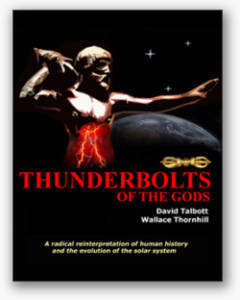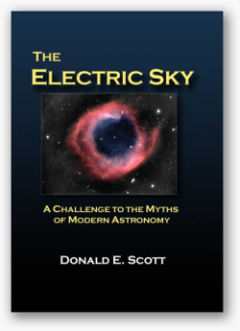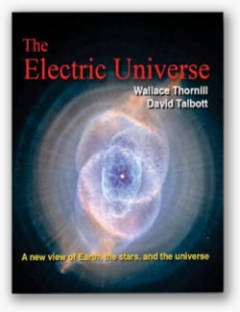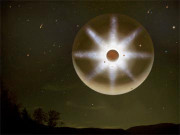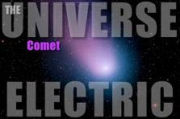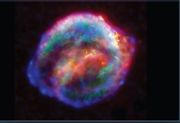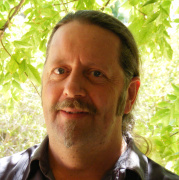|
|
The AAAS - Climate Change Causes Blurred Vision
by Dave Smith
|
|
July 06, 2011
|
|
|
Death threats and personal attacks not withstanding, surely the
professional integrity of ANY scientist should be open to investigation
if evidence emerges of possible misconduct or misuse of essentially
public funds. Without stating a position one way or the other on
anthropogenic climate change, my understanding of the debacle was
not that it was based on "displeasure with their scientific conclusions"
but rather on evidence of possible falsification of data/results. There
is a huge difference.
- davesmith_au Jul. 1, 2011 at 7:19am [11:19 UTC]
The above comment was submitted by this author to a
ScienceNews article which claimed that
“[The AAAS Board]
decries intimidation of researchers, expresses concern that public access
to important data may be in jeopardy”. I also decry
intimidation of researchers and am concerned that public access to
important data may well be in jeopardy. However the article which
followed this introductory statement was anything but supportive of
the initial statement. It referred mainly to a
statement issued by the Board of the AAAS (American
Association for the Advancement of Science) supposedly regarding personal
attacks on climate scientists. When you read through the actual statement
with a critical eye, you are left to wonder what purpose it could possibly
serve, except to obfuscate the real issues of what came to be known as Climategate.
From the Statement of the Board of Directors of the American Association
for the Advancement of Science Regarding Personal Attacks on Climate Scientists:
We are deeply concerned by the extent and nature of personal attacks on
climate scientists. ...
As would anyone be, if it were as cut and dried as that, but it isn't.
... Reports of harassment, death threats, and legal challenges have
created a hostile environment that inhibits the free exchange of scientific
findings and ideas and makes it difficult for factual information and
scientific analyses to reach policymakers and the public. This both
impedes the progress of science and interferes with the application
of science to the solution of global problems. ...
Harassment and death threats aside, legal challenges are a vital part
of maintaining the integrity of any group which uses public funds. Whilst
harassment and death threats may indeed create a hostile environment, legal
challenges should not be included in the same sentence. Legal challenges
(in this context) are surely designed to help establish factual information
and scientific analyses or to expose falsification or malfeasance if it is
present. Blurring these lines of distinction is disingenuous of the Board.
... AAAS vigorously opposes attacks on researchers that question their
personal and professional integrity or threaten their safety based on
displeasure with their scientific conclusions. ...
There are two problems with this sentence.
First, questioning the professional integrity of a scientist is not
an attack. In this case it is the legal right of the taxpayers whose
funds support the work of said scientist(s). Adding "personal integrity"
and "threaten their safety" into this sentence is again blurring the lines
of distinction.
This kind of statement is much like asking someone "Should I be allowed to
disagree with, abuse and beat my wife?" The answer to the question as a
whole, has to be "no", but the answer to the "disagree with" would, in
most cases, be "yes". However the emotional response to the second and
third parts is strong enough to elicit a "no" to the question without
separating the individual segments of it or qualifying the answer.
Second, the whole sentence is qualified by the phrase
“based on displeasure with their scientific
conclusions”. Anyone with even an ounce of fair play would
agree that this should not be considered a reason to question even the
professional integrity of another. However, basing an investigation on
evidence of possible misconduct is another matter entirely. More blurring
of the lines.
... The progress of science and protection of its integrity depend on
both full transparency about the details of scientific methodology and
the freedom to follow the pursuit of knowledge. ...
No-one would argue with this. Strangely, this is exactly what prompted
this investigation. That is, it appears certain scientists may not have
been compliant with this very principle!
... The sharing of research data is vastly different from unreasonable,
excessive Freedom of Information Act requests for personal information
and voluminous data that are then used to harass and intimidate scientists.
The latter serve only as a distraction and make no constructive contribution
to the public discourse.
Again, who would disagree with the statement that unreasonable and
excessive FOIA requests of the type and used for the purposes
stated would make no constructive contribution to the public discourse?
And why even compare any FOIA requests to the sharing of research data?
This statement does not even address valid, reasonable FOIA
requests, which should be welcomed by any body using public funds, to assist
in their exoneration had their integrity been questioned where no wrong had
been perpetrated. The very use of the terms "unreasonable" and "excessive"
are, in this context, serving to subtly undermine the validity of the FOIA
requests in question, and thus to distract from the proper public discourse.
More blurring.
Scientists and policymakers may disagree over the scientific conclusions
on climate change and other policy-relevant topics. But the scientific
community has proven and well-established methods for resolving disagreements
about research results. Science advances through a self-correcting system in
which research results are shared and critically evaluated by peers and
experiments are repeated when necessary. Disagreements about the interpretation
of data, the methodology, and findings are part of daily scientific discourse. ...
This segment of their statement is largely referring to the "peer-review"
system, the efficacy of which is not only unproven, but also has been
seriously criticized. Whilst the public is continually
bombarded with the misconception that peer-review is almost faultless, the
reality is that the "well-established method" of peer-review has no scientific
basis for reliance upon it to deliver what is claimed, yet it is the very system
upon which we rely to deliver good science!
... Scientists should not be subjected to fraud investigations or
harassment simply for providing scientific results that are controversial. ...
Here again, "fraud investigations" and "harassment" are used in the same
sentence and tied to providing controversial results in a manner which begs
agreement from the uncritical observer. Of course no-one should be harassed.
Nor should anyone be investigated for providing controversial scientific
results. But a fraud investigation is not about controversial results,
it is about malfeasance, a very serious issue if found in any of the sciences.
To be quite clear, a fraud investigation has nothing to do with controversial results,
but is instigated upon substantial suspicion of fraudulent activity. More blurring.
... Most scientific disagreements are unrelated to any kind of fraud
and are considered a legitimate and normal part of the scientific process.
The scientific community takes seriously its responsibility for policing
research misconduct, and extensive procedures exist to protect the rigor
of the scientific method and to ensure the credibility of the research enterprise.
This may all be true, but that does not negate the fact that people can,
and do, subvert procedures to achieve desired outcomes. This is why a proper
investigation should be conducted if a reasonable suspicion of fraudulent
activity exists.
While we fully understand that policymakers must integrate the best
available scientific data with other factors when developing policies,
we think it would be unfortunate if policymakers became the arbiters
of scientific information and circumvented the peer-review process. ...
It would also be unfortunate if policy-makers were to integrate
falsified data with other factors when developing policies.
Likewise it would be unfortunate if scientists were immune from
investigation when there is evidence to suspect that they may have
abused or even rigged the peer-review process. More blurring.
... Moreover, we are concerned that establishing a practice of
aggressive inquiry into the professional histories of scientists
whose findings may bear on policy in ways that some find unpalatable
could well have a chilling effect on the willingness of scientists to
conduct research that intersects with policy-relevant scientific questions.
And last but not least, another incidence of qualifying a statement
in a way in which it is difficult not to agree. Of course an aggressive
inquiry should not be established simply because a scientist's findings
are unpalatable. However, allegations of impropriety (supported by at
least some tangible evidence, however obtained) demand at least a cursory
investigation. If this supports the initial allegations, then a fraud
investigation should follow. Those who have done nothing wrong, have
no reason to fear such action. More blurring.
So what was it that inspired the AAAS Board to put together what
is essentially a shabby, ambiguous and misleading document? Janet Raloff
of DiscoveryNews explains:
Together with marine scientist Nancy Knowlton of the Smithsonian
Institution’s National Museum of Natural History, in Washington D.C.,
Orbach introduced a resolution at the May board meeting of the AAAS
asking for a formal condemnation of the public intimidation of climate
researchers. When I asked him what had triggered the move, he pointed
to a succession of events in recent years, including:
-
a campaign by Virginia attorney general Ken Cuccinelli to obtain access
to research data by former University of Virginia climate scientist
Michael Mann (now at Penn State). Cuccinelli said he wanted to prosecute
Mann or his university under the Virginia Fraud Against Taxpayers Act for
misuse of state funds
-
a petition by the American Tradition Institute (ATI) — a
“free-market”-based think tank — demanding that the University of Virginia
turn over thousands of e-mails and documents written by Mann
-
ATI’s January 19, 2011, filing of a Freedom of Information Act request
for NASA to hand over documents detailing “whether and how ‘global warming’
activist Dr. James Hansen of NASA’s Goddard Institute for Space Studies
(GISS) has complied with applicable federal ethics and financial disclosure
laws and regulations, and NASA Rules of Behavior”
-
and news accounts of climate researchers receiving death threats in
response to reports of their findings.
Aside from one newspaper article, from Australia no less (a Canberra
Times article is the sole citation relevant to "news accounts"),
the entire motivation for the Board's statement appears to be a response
to legally valid requests for information regarding the possible misappropriation
of public funding. This appears to be political maneuvering, nothing
more and nothing less, and hypocritical in the extreme. The hypocrisy
becomes clearly apparent when one considers the Board's thinly veiled
accusations against Attorney General Cuccinelli contained in their
first statement on what is essentially the same
matter, Statement Concerning the Virginia Attorney General’s
Investigation of Prof. Michael Mann’s Work While on the Faculty
of University of Virginia:
... Mr. Cuccinelli’s investigation, unless based on a much more
substantial body of evidence than is apparent, could inappropriately
inhibit the free exchange of scientific findings and ideas and thus
limit the progress of science. ...
Do the Board seriously think any Attorney General is going
to launch an investigation based on thin air? And how could an
investigation into the actions of one scientist be construed
as leading to the inhibition of free exchange of findings and limiting
the progress of the whole of science? Looks like even more
blurring of those pesky lines of distinction.
... the manner in which this investigation is being conducted and the
lack of a clear rationale for it suggest that the investigation may be
aimed at something other than financial malfeasance. ...
*Waiting for the other shoe to drop* ...
... Unless more clearly justified, Attorney General Cuccinelli’s
apparently political action should be withdrawn.
Ah, there it is. Accusing an Attorney General of abusing his position
to gain political advantage is outrageous unless accompanied by substantial
evidence, and should in itself be cause to launch an investigation into the
integrity of the AAAS Board. Of course, the Board included "unless" and
"apparently" to qualify their sentence, so as to make it not quite an
accusation, thus it's the accusation you make when you're not making
an accusation. Seems a bit blurry.
What possible political outcome could Cuccinelli be seeking in launching
a baseless investigation? I suggest it would be "career suicide" for
any Attorney General to do such a thing.
And what of the AAAS and how it is now using its essentially public
funds? Funded in large part by grants, dues and donations one wonders
if is it appropriate for the AAAS to engage in this sort of political
interference in what is a legal process and should be something viewed
from the sidelines until the legalities are played out.
It's interesting to note that the second of their statements on this issue
shares a large number of phrases from their first
statement. The first was a response to Cuccinelli's attempt to investigate
Michael Mann. Now that more FOIA petitions are in action, they've just
widened the scope of their first statement. They
claim to serve 10 million scientists yet the Board
sees fit to spend its time producing statements relating to the records
of just a handful of these 10 million. Remember we are not talking here
of a letter or two in support of colleagues, but the management of a
huge association spending time and effort to make official its support
of a handful of scientists whose professional integrity is questioned.
Surely they have better things to spend their time and money on than
what is essentially propaganda.
It seems the whole climate change issue has severely blurred the vision
of the AAAS.
|
|
|
Permalink to this article.
Email this article to a friend
Public comment may be made on this article on the
Thunderbolts Forum/Thunderblogs (free membership required).
For a comprehensive central repository of links to study
Plasma Cosmology/Electric Universe please visit:
PlasmaResources.com
|
|
|
|
|
|
|
|
|
YouTube video, first glimpses of Episode Two in the "Symbols of an Alien Sky"
series.
|
|
|
|
|
|
|
Three ebooks in the Universe Electric series are
now available. Consistently
praised for easily understandable text and exquisite graphics.
|
|
|
|
|
|
|
|
